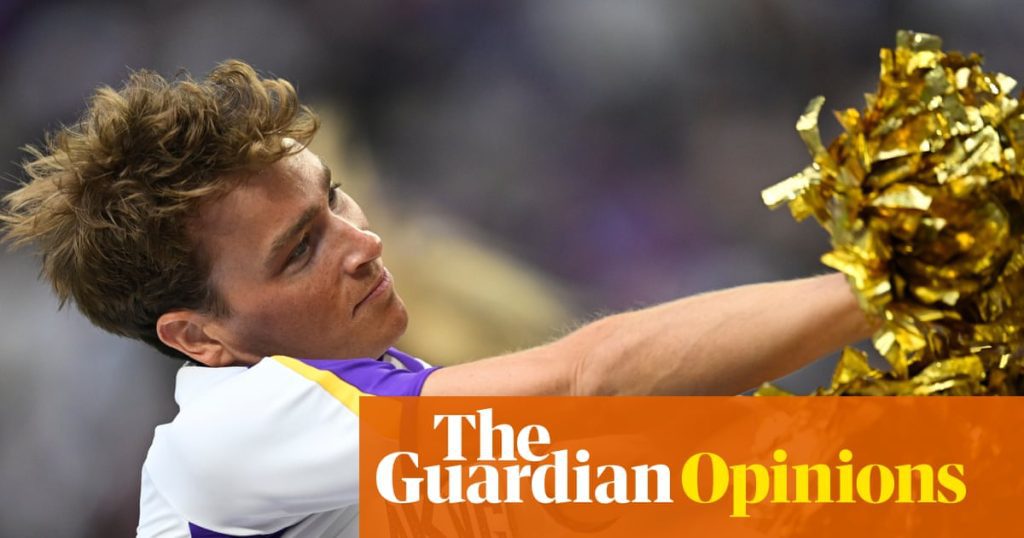Unexpected Outrage in Professional Football
Among the various existential challenges confronting professional football—such as concussions affecting players’ mental health, internal scandals, and declining interest among younger audiences—who would have anticipated that a simple display of two men dancing on the sidelines would provoke such strong reactions?
Vikings’ Cheerleading Squad Makes Headlines
This month, the Minnesota Vikings debuted a new 35-member cheerleading squad with an eye-catching promotional video captioned, “The next generation of cheer has arrived!” Notably, the inclusion of male performers Blaize Shiek and Louie Conn drew considerable attention.
Mixed Reactions Online
Almost immediately, reactions surged online, ranging from heartfelt support to calls for boycotts, alongside a homophobic slur from a former NFL player whose name should remain unpublished. Despite this backlash, the Vikings maintained their stance, reflecting Minnesota’s history of embracing innovators who challenge norms, much like the iconic Prince, known for his gender fluidity.
Inclusivity in Cheerleading
The Vikings emphasized in an official statement that male cheerleaders have existed historically at amateur, collegiate, and NFL levels. By the 2025 season, at least 11 NFL teams feature male cheerleaders, beginning with the Los Angeles Rams in 2018, when Quinton Peron and Napoleon Jinnies made history and later performed at the Super Bowl in 2019. The Vikings underscored that Shiek and Conn secured their positions through the same competitive process as their fellow cheerleaders.
The Perception of Cheerleaders by Players
Having been drafted by the Dallas Cowboys in 2015, I can vouch for the immense pressure players face regarding performance, masculinity, and teamwork. Yet, cheerleaders were seldom on my mind or that of any player. Their presence on the sidelines doesn’t hinder the game; rather, they provide entertainment for the fans, meaning they should represent all fans.
Challenging Traditional Masculinity
The outcry against male cheerleaders reflects deeper issues of presence and visibility rather than performance. Many voices protesting their existence are not focused on talent or dedication but are instead reacting to a challenge to antiquated views of masculinity tightly woven into the fabric of sports culture.
Embracing Change for a Better Future
The backlash reveals fears surrounding control over masculinity and public representation. This reaction is part of a larger cultural resistance to inclusivity and liberation. Football’s essence lies in its emotional experiences—through joy, vulnerability, and community—highlighting that masculinity is fluid, not fixed. Cheerleaders like Shiek and Conn symbolize the future and the inclusivity that should define sports, making them more powerful and welcoming for all.



